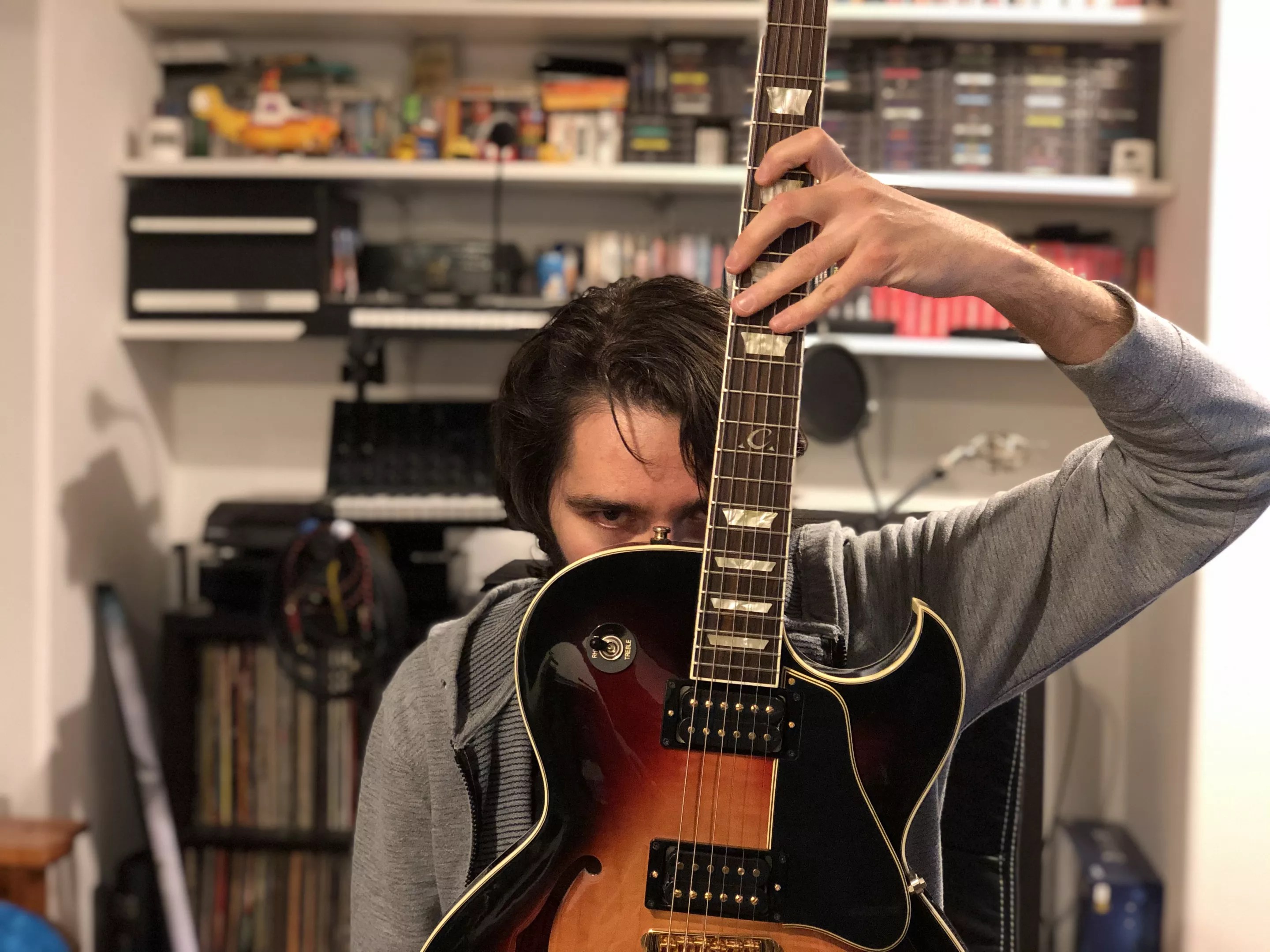
Courtesy Michael Zucker

Audio By Carbonatix
When Michael Zucker heard country singer Gillian Welch‘s “Everything Is Free” streaming online one day, he felt the familiar spark of inspiration.
The lyrics – “Everything is free now, that’s what they say. Everything I’ve ever done, gotta give it all away. Someone hit the big score, figured it out. That we’re gonna do it anyway, even if it doesn’t pay” – rang true to him. The longtime Colorado musician, who boasts more than forty releases on Bandcamp, which he says treats musicians fairly, has decided to start re-releasing his music on streaming services like Spotify. Welch’s song served as his muse, even if he’s not too crazy about the idea.
He covered the song to mark the occasion and has more covers he plans to release in the near future, including a Beach Boys track and ‘Teenage Dirtbag,” Wheatus’s piece of bubblegum pop from the late twentieth century.
Streaming has become the medium of choice for millions of music listeners. It’s not universally loved, however. Many vinyl collectors, for example, cringe at the idea of allowing an algorithm to make music listening choices for them and refuse to abandon the thrill of dropping a needle on a record or finding some rare gem in a stack of vinyl.
Zucker, a research scientist by day, felt a little bit ambivalent about the decision to put out music on streaming platforms. Although he has occasionally gone that route when he thought the occasion called for it, he never paid much mind to services like Spotify or Pandora save for keeping up on the discussions about whether they fairly compensate musicians for their work. (Most argue they don’t.)
According to a CNBC story from 2018, Spotify pays anywhere from $.006 to $.0084 per stream to the holder of the music rights. The holder can be the artist, but that can also mean the songwriter, the producer and the record company get a piece of that. It would take a lot of streams for any reasonable amount of money to come rolling in.
That’s not lost on Zucker.
“Spotify is paying me like 10 cents a month,” he says. “They’re paying me nothing, so it was definitely begrudging. I’m going to have to pay a fee to put it up there. … Even if I got ten times as many streams as I do now, it’s going to take forever to make that back. You are really just giving it away.”
Oh, well. You can’t fight progress. Well, you can, but you risk falling into irrelevance. And artists want people to hear their creations. That desire among creative people allowed streaming companies to have a foot firmly planted on artists’ necks, Zucker says.
“There’s almost no other way to do it,” he explains. “I have had fans reach out to me asking for some of this stuff. It’s like they have Spotify, and that’s what they want to use. So I understand it from a user standpoint.”
He adds that a company like Spotify, which takes most of the blame because it’s become such a behemoth, actually gives most of the revenue it takes in back to royalties. So its role as villain in the streaming controversy is perhaps not totally deserved.
“Everybody started talking about ‘This company is evil. They’re stealing all the profits for themselves,'” he says. “I think the problem is a little deeper. It’s not so much that they’re being greedy and taking the majority of their gross. A majority of it goes to royalties. There just isn’t enough money in the pot.”
Zucker’s music spans genres. He’s released drum, guitar and bass covers of Super Mario Brothers songs and dove into the strange world of progressive rock. (He’s a huge Mars Volta fan, and that band’s influence is apparent in some of his output.) He also makes chiptune music evoking lo-fi ’80s video-game music, and he’s played in a band that exclusively made video-game covers.
He feels just as comfortable with digital music as he does with analog guitar pedals, and describes his output as a “hodgepodge” of styles. He’s starting to gain some traction on streaming services, but he jokes that the computer programs that power them don’t quite know what to make of him.
“I’m totally throwing a wrench in their algorithm,” he says. “It does not know where to place me, because I definitely have all these different genres going on.”
Check out Michael Zucker on Bandcamp.com. Be on the lookout for re-releases of his back catalogue on his Spotify page.